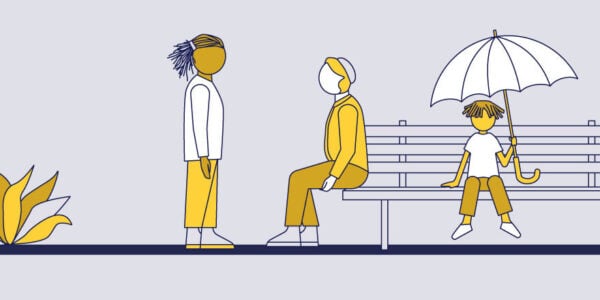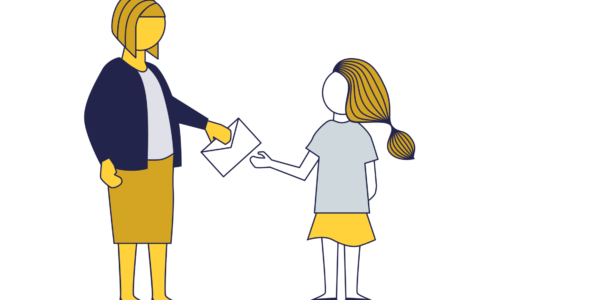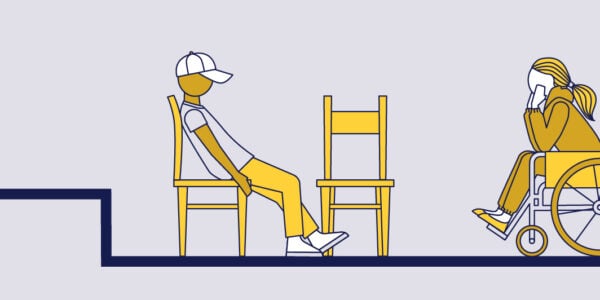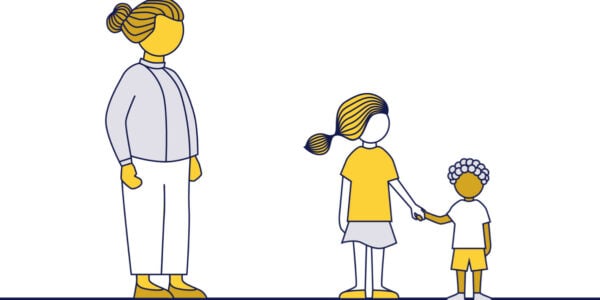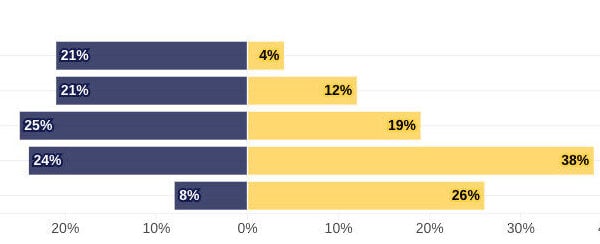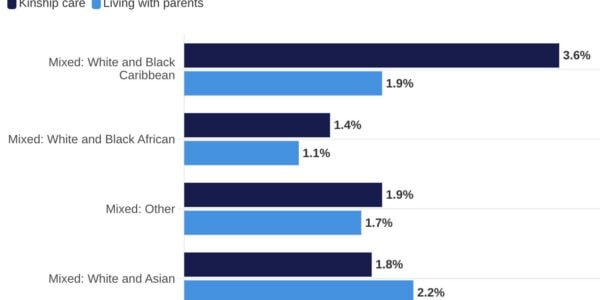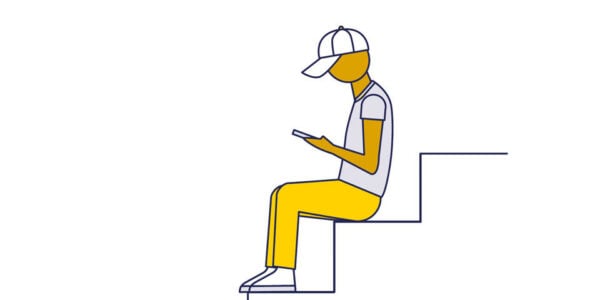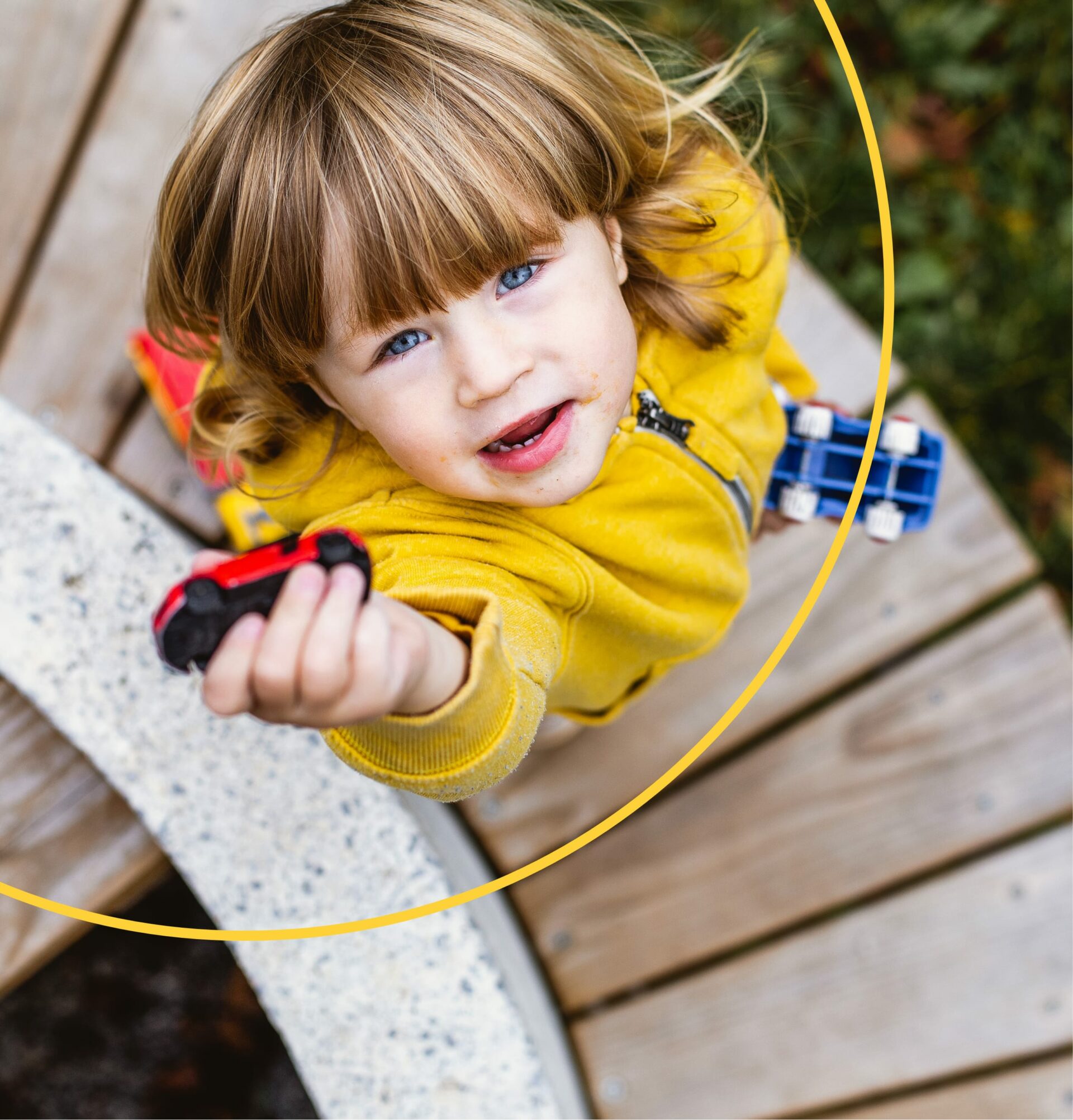It’s compassionate, honest social work. It’s about asking yourself, what’s the right thing to do? How would you want to be treated?Kate Ronconi, principal officer, Swansea Council’s care and support unit
A pre-birth, multi-agency service in Swansea that offers expectant parents at risk of care proceedings with their unborn babies holistic, compassionate support early in pregnancy has seen positive outcomes, with fewer babies being removed from their parents’ care. And following the recent introduction of new processes, there has been a reduction of nearly 50% in the number of babies being separated from their parents at birth – falling from 33 in 2022 to 18 in 2024.
Safeguarding concerns for unborn babies typically arise from parents experiencing vulnerability or trauma or living in complex circumstances, but as Nuffield Family Justice Observatory Born into Care research on compulsory state intervention at birth has highlighted, help and support for the problems and challenges parents face often comes too late in pregnancy, leaving insufficient time for them to overcome difficulties and make the changes needed to avoid their baby being separated from them. If support – which might include help with mental health issues or substance misuse, or to secure stable housing – is obtained at the earliest point in pregnancy, parents have a better opportunity to demonstrate they can safely care for their baby and provide a nurturing family home.
Jig-So is an innovative joint local authority and health pre-birth service, established in 2016. The service currently works with around 160 families per year, which is 7% of all births in Swansea. While Jig-So always offered parents support early in pregnancy, it started working with them at an even earlier point after its joint funders – Swansea Council and Swansea Bay University Health Board – became involved with the development of the Born into Care best practice guidelines. The culmination of a collaborative, qualitative research study involving parents and a range of professionals from eight local authorities and seven corresponding NHS trusts in England and Wales, the guidelines aim to help professionals better support parents, and to be more equipped to deal with emotionally and ethically difficult circumstances.
Jig-So offers holistic support through a multidisciplinary team, including midwives, nursery nurses and parenting support workers, co-located in the same office. The team was already delivering an effective service with a high level of parent engagement, but says new processes that have been implemented in line with the guidelines have further improved the support it offers families.
Early pre-birth help and support
A key practice change that the guidelines encourage is early joined-up assessment and help in pregnancy from health and children’s services, to capitalise on the important window of opportunity provided in the pre-birth period, where parents can be supported with practical and therapeutic help and motivated to address the problems and issues they face and make positive changes.
Jig-So now accepts referrals as early as eight to 10 weeks into pregnancy, potentially sooner if parents have previously had children removed from their care. Jig-So coordinator Mike Davies explains: “Parents need to be given as much time as possible to address concerns raised by the local authority. Since being involved with the best practice guidelines project, 95% of referrals to Jig-So now happen at the 10-week community midwife booking appointment, which is around two to three months earlier than before. Referrals late in pregnancy are very rare, and would usually only happen if a family moved into the area during the later stages of pregnancy.”
Discussing how Jig-So has improved the way it works with parents, Mike says: “The team works together and meets regularly to offer timely, specialist support. Following the referral, there is a short assessment, taking just seven to 10 days, carried out by the social worker, during which they will identify the work and support needed – this forms the foundation of the plan of care for the family. This feeds into a mapping meeting attended by parents and professionals by week 12-13. The best practice guidelines recommend engaging with other family members at a timely point, to see how they might be able to support the parents. So, by 14 weeks there will be a family network meeting to help the parents and their support network to understand the existing safeguarding worries and what kind of support is available to help them make safe choices in the future. The parents will often be allocated a midwife and parenting support worker by week 14, alongside their social worker, to support their needs. So, all Jig-So professionals are working together from 14 weeks after conception and staff have up to 26 weeks to work with families before their babies are born.
“We provide a wide range of support and education around foetal and child development, through enhanced midwifery, nursery nurse and parenting support. We also offer practical support with housing and finances, and additional support from wider teams for drug or alcohol use, mental health, and domestic violence. We work hard to make sure the families have the right support at the right time. Our staff have a trauma-informed approach to help families overcome any barriers to be the best they can be.”
Our staff have a trauma-informed approach to help families overcome any barriers to be the best they can be.Jig-So coordinator Mike Davies
Creative thinking
What makes Jig-So’s achievements even more remarkable is that the service is currently working amidst extraordinary challenges related to crack cocaine, a crystalised form of cocaine. As Kate Ronconi, principal officer at Swansea Council’s care and support unit, says: “The availability and use of crack cocaine has risen in Swansea over the last few years; it is probably the biggest challenge the area is facing. We needed to find creative and innovative ways to support women who are using or who are at risk of using this Class A drug. Jig-So and Swansea’s drug agencies collaborate, and we support women to obtain or find out more about contraception.
“Being involved in the Born into Care project has made an enormous difference to the way we work with parents, and we make unborn babies a higher priority, rather than just thinking about the help we can provide to children and young adults already in the care system. It has changed our whole approach. It encouraged us to challenge our thinking, use existing resources in a different way and talk to each other more to find solutions.”
Mike adds: “We can be creative in the way we work with other agencies. We might put support into a home to keep families together, for example. We work with the Parent And Child (PAC) community support team, so can offer intensive daily support that can help the social work teams to think more creatively about the support on offer post-birth. For example, we have supported a young mum with learning difficulties by putting in daily intensive support to supplement the social work plans. There has been a very positive outcome because with this additional support this mum was able to evidence that she could provide excellent care to her baby. Of the 33 families that have been supported by PAC, 32 have been positive. PAC really does do tremendous work.”
A mum’s experience with Jig-So
A mum who has been supported by Jig-So explains how the service has helped her: “I’ve had so much support and so much positive guidance from Jig-So. I’ve worked with social services as well through this pregnancy. They closed the case because I’ve accepted so much support from Jig-So and engaged with social services.”
The mum previously had a child removed from her care and felt that at that time she had no support from anyone. She says: “With Jig-So, there’s just been a huge, huge difference. I feel like I can be a mum. I feel like I do a good job. I feel like my mental state is positive now, whereas before I doubted myself, and it’s just been really positive. I can’t thank Jig-So enough for all the help that I have.”
I feel like I can be a mum. I feel like I do a good job. I feel like my mental state is positive now, whereas before I doubted myself.A mum who has been supported by Jig-So
Improving sensitivity, privacy, care and support in hospital
Another recommendation from the best practice guidelines that Jig-So has introduced is an increased focus on sensitive practice and improving privacy, care and support when a mother is facing the acutely traumatic and distressing prospect of being separated from her baby shortly after birth, while still on the maternity ward (care proceedings can be issued by a local authority as soon as a baby is born if it believes the baby is likely to suffer significant harm as a result of parental action or inaction). The team has been able to influence hospital practices, particularly the amount of time new mothers can remain in hospital.
Kate explains: “The senior midwifery management team have really taken the Born into Care guidelines on board. The guidelines recommend offering mothers who are facing care proceedings the choice to stay in hospital with their babies for a while longer than usual, and even though we have a busy maternity unit in Swansea and bed occupancy is high, mums can now have five days in hospital after the birth. Parents can spend precious time with their baby, and potentially the court hearing and the actual separation (if that is the decision) can be delayed. A few years ago, parents might have gone to court the same day the baby was born. It is a massive achievement that’s had a positive impact. While we know that a separation is still heartbreaking for parents, the additional days in hospital can make a really challenging and traumatic experience more bearable, and parents tell us they appreciate the extra time spent with their babies.”
Members of the Jig-So team talk more about the changes that have been implemented in hospital in a short film called Born into care: Minimising trauma film (at 04:30-06:24 and 08:05-09:12), available to watch on the Born into Care: Best practice guidelines and other resources page.
Kate continues: “We’ve also developed very detailed birth arrangements plans; lots more work goes into them now, and the aim is to provide parents with more transparency, choice and control. They are completed by week 34, but we aim for week 32. They are co-produced with families if they feel able to engage and think about the potential separation. They are very meaningful; we discuss and agree with parents and the wider family a very detailed plan for what will happen if the parents and baby need to be separated, including what clothes the baby will wear, who will hand the baby over, and where and when the separation will take place. Having the opportunity to make decisions about the separation makes the experience very different for families. We took inspiration from Together for Children Sunderland’s birth plans – they were also involved in the Born into Care project and also share their knowledge and experience through a Community of Practice that has been established.”
Specialist teams working on recurrence and in pre-birth can join the Research in Practice Community of Practice: apply to Fidelma Hanrahan (fhanrahan@ncb.org.uk) or Grace Akinyeme (gakinyeme@ncb.org.uk) at Research in Practice/National Children’s Bureau.
If a baby is separated from their parents despite Jig-So intervention, support for parents continues through Reflect, another Swansea Council service. If there is another pregnancy, the family can be referred back to Jig-So, so support is maintained.
Achieving change
Explaining how so many changes have been achieved, Mike says: “We were fortunate that the new processes have been championed by senior management and that we could make a multi-agency, joined-up approach work – we know that sadly not all teams will have the same opportunities or resources. We would have always described ourselves as a collaborative, empathetic and non-judgemental team, but whereas before we had good pockets of practice – with individual staff doing individual things – now it’s completely embedded; it’s become the norm. We all sit together and truly work together, and we’ve found this results in better outcomes for families. We have seen a real difference from the changes we’ve made.”
Kate adds: “All the people on our team are passionate and practically minded. Changing hearts and minds was straightforward. We’re all on the same page. Plus, we are all spurred on by Mike’s empathy, pragmatism and determination; I wish all teams could have that.
Even if in the end the parents and baby can’t stay together, some parents have told us they are grateful for at least being given the best chance. We better support parents now. It’s compassionate, honest social work. It’s about asking yourself, what’s the right thing to do? How would you want to be treated? We all want to do the right thing for babies and the right thing for families – and we all absolutely believe in what we are doing.”
Whereas before we had good pockets of practice – with individual staff doing individual things – now it’s completely embedded; it’s become the norm.Jig-So coordinator Mike Davies
For further information on Jig-So, please contact Mike Davies: Mike.Davies5@swansea.gov.uk. You can watch an interview with Mike here, and interviews with team members of Jig-So, Swansea Council and Swansea Bay University Health Board can be found within films on the Born into Care: Best practice guidelines and other resources page.
